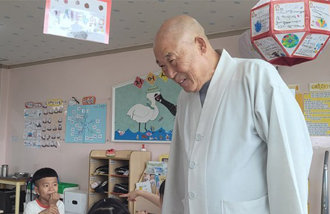[Editorial] The Future of the Administrative City
[Editorial] The Future of the Administrative City
Posted November. 25, 2005 08:29,
The Constitutional Court, which found relocating the nations capital unconstitutional a year ago, ruled yesterday that the construction of a multifunctional administrative city, where 12 ministries (and the office of the prime minister) will be relocated, is constitutional.
The constitutional complaint claiming the unconstitutionality of the city construction was dismissed by seven out of nine judges. Kwon Seong and Kim Hyo-jong, the two judges who delivered unconstitutional verdicts, said that the capital is one entity and that the construction of the administrative city constitutes division of the capital, which requires a constitutional amendment. However, their views remained the minority opinion.
The legal disputes surrounding the administrative city have been finalized due to the verdict, but the Roh Moo-hyun administration now bears a heavier responsibility. The biggest challenge ahead is to address possible inefficiencies in state affairs caused by the separation of the relocated offices and the remaining ones, including the presidential office, the National Assembly, the Supreme Court, and six ministries. Another difficult task is to muster the astronomical amount of budget money to do so while Korea is short of tax revenues.
The Metropolitan Seoul area also needs a new development plan, which must be implemented without fail. The capital of Seoul is itself the most valuable brand Korea can present to the world. There are not many cities worldwide that are equipped with such an abundant, highly-educated workforce and strong infrastructure like Seoul. The government should live up to its promise to keep developing Seoul into the economic and financial hub, and attract foreign investment in high-tech industries around the Metropolitan Seoul area.
The groundbreaking for the construction of the new administrative city is slated for July 2007, when the term of the incumbent administration will almost be up. The project outline will be completed during Rohs term of office, but most part of the work will be passed on to the following administrations, as it is scheduled to be completed in 2030. The current administration, therefore, should refine the project in a way that it can strengthen national competitiveness and at the same time does not place excessive burden on people so that the following administrations can willingly take over the project.
The administrative city should not be exploited as a source of political ammunition during the elections. Now is time for the government and Korean people to gather wisdom to foresee a distant future, even the time after reunification, and to make the project a success from a national strategic view. The Roh administration should think about the historic assessment of the project by future generations.







